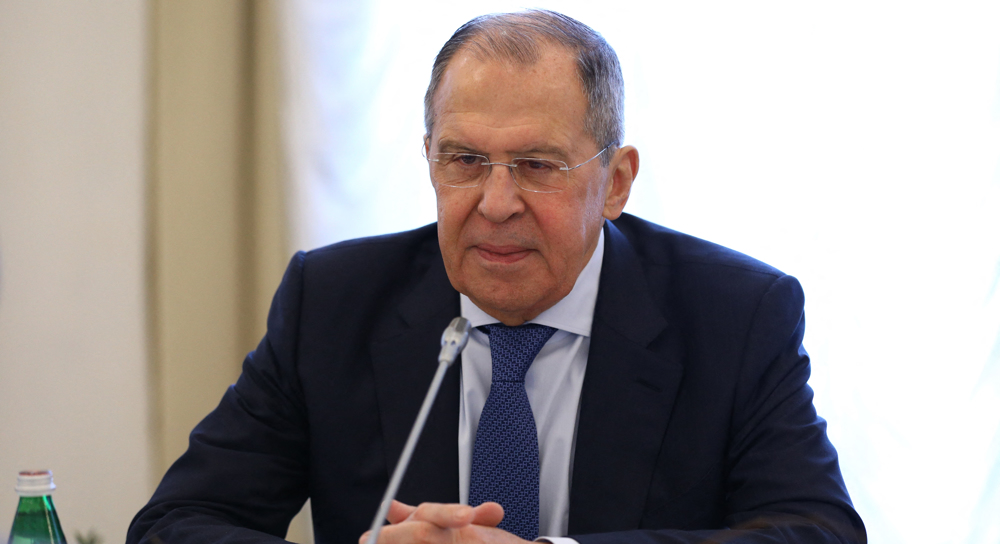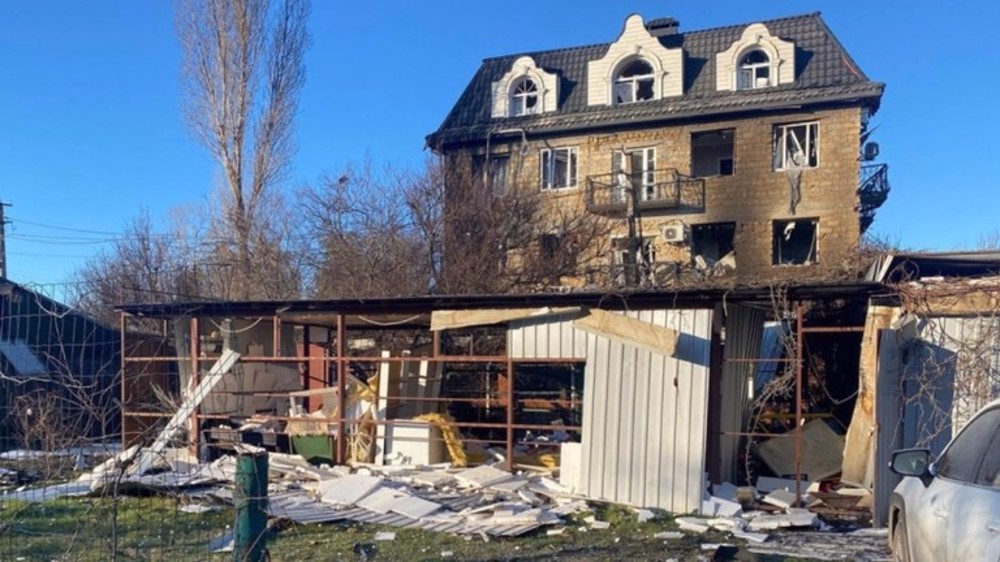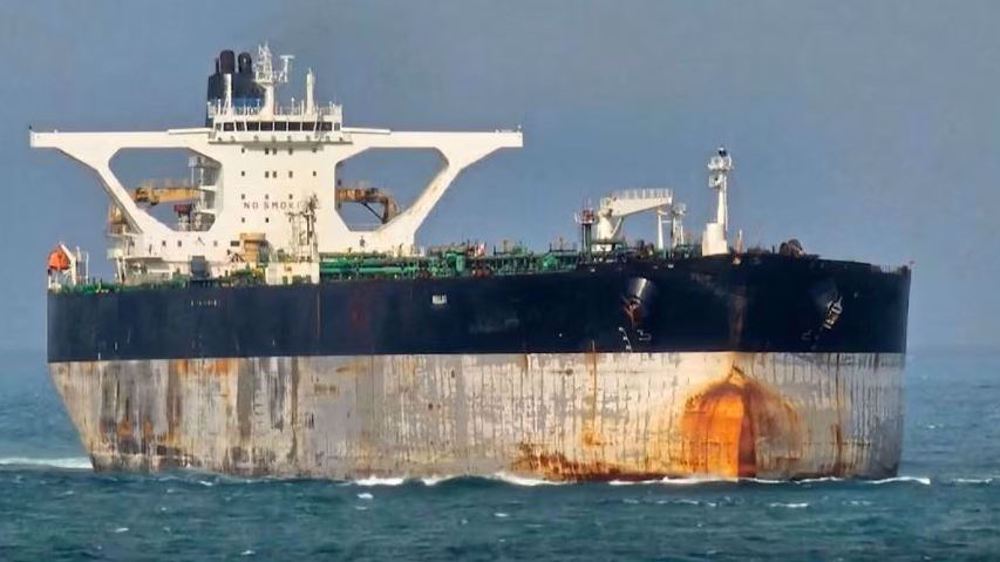Russia-EU ties torn to shreds by bias: FM Lavrov
Russia says the European Union has hampered normal relations with Moscow through “bias” in a way that Russia is now “perceived as stranger” in the eyes of the West.
"The bias [hinders the relations], by and large," Foreign Minister Sergei Lavrov said. “As former US President [Barack] Obama once said (though about the Russian economy), relations have been torn to shreds."
Many of the mechanisms of interaction between Moscow and Brussels have brought down, according to Lavrov.
In a visit to Moscow this months, EU foreign policy chief Josep Borrell acknowledged that relations between Brussels and Moscow have fallen to "a low point” lately.
The Russian diplomat further said that Moscow maintains normal bilateral dialogue with EU nations outside the frames of the bloc discipline.
"Beyond the frames of this discipline, this ‘bloc solidarity,' we have a normal conversation," he said.
"Many countries maintain relations with Russia. Borrell’s visit was the first one at such a level in the past three years,” Lavrov said.
“Over this time, a couple of dozens of foreign ministers from the European Union member nations have visited Russia. We maintain a good dialogue," he added.
Lavrov also criticized EU sanctions against Russia as a way for Brussels “to bolster their self-esteem.”
“Now they begin to act in the same way as the US, including displaying the mentality of the exceptional cohort of states," said the Russian diplomat.
Lavrov echoed remarks made by President Vladimir Putin last week about the West’s strategy to “contain” Russia.
Putin said that Russia’s “numerous successes” on a military level as well as its management of the coronavirus pandemic and the development of the Sputnik V vaccine were “starting to irritate” Moscow's adversaries.
“We have had a lot of success, and it annoys them,” the president said in an interview with the Russian media, that was broadcast on a public television on Sunday.
“That’s where the containment policy, including in the economy, comes from,” he said. “The stronger we become, the stronger this containment policy.”
The EU has repeatedly threatened to impose sanctions on Russia over the imprisonment of Russian opposition figure Alexei Navalny case.
In response to the threats, Lavrov has labelled Brussels as “an unreliable partner,” saying the Kremlin is “getting used to the fact that the European Union is trying to impose unilateral restrictions, illegitimate restrictions.”
Russian police detained him upon arrival at Moscow’s Sheremetyevo Airport from Germany last month, five months after he was transferred to a hospital in Berlin to be treated for what the West alleged had been a nerve agent attack by Russia.
Moscow has repeatedly rejected the allegations, saying the West is exploiting the case for political reasons and using it as a pretext to impose more sanctions against Russia.
Lavrov also touched on the issue of the Nord Stream 2 gas pipeline that carries Russian natural gas to Europe.
The Moscow-led Nord Stream 2 gas pipeline is designed to double the capacity of the existing Nord Stream undersea gas pipeline linking Russia and Germany and to supply cheaper energy to Central European customers.
Under the agreement between Moscow and Berlin, it was to be launched in mid-2020, but the project has been delayed due to hurdles imposed by the US.
"The situation with the Nord Stream 2 is absolutely straightforward", said Lavrov. “There is also no withdrawal from the demand on Europe in respect of the Nord Stream 2 to stop participating in some affairs undermining the European security.”
US singles out Russian ship for Nord Stream 2 sanctions
The US on Friday singled out a Russian ship and a company it accused of helping to build the pipeline.
The administration of President Joe Biden said in a report to Congress that the Russian ship, the Fortuna, and its owner, KVT-RUS, had been designated, a process that starts new sanctions, two lawmakers said.
“Simply put, today’s sanctions designations are wholly inadequate,” Representative Michael McCaul, the top Republican on the House of Representatives Foreign Affairs Committee, said in a statement.
“Allowing this pipeline to be completed would be nothing short of a victory” for Russian President Vladimir Putin, he said.
The project is more than 90% complete and Russia’s state energy company, Gazprom, and its Western partners are hoping to finish it this year.
The administration of former president Donald Trump had opposed the project, saying it would increase Russia’s economic and political leverage over Europe. Moscow and Germany, however, say Nord Stream 2 is a commercial project.
Biden, according to his spokeswoman Jen Psaki, believes that the pipeline is a “bad deal” for Europe.
VIDEO | Israel withholds fate of disappeared Palestinians
VIDEO | Venezuela's interim president will continue same policies: Analyst
Iran’s support was pivotal in decisive victory over Daesh: Iraqi PM
US kidnapping of Maduro makes mockery of intl. law, sets dangerous precedent
Afghan border closure, fewer terror attacks in Pakistan
VIDEO | From trauma to triumph
VIDEO | Press TV's news headlines
VIDEO | Iranians mark Father’s Day coincided with Gen. Soleimani martyrdom anniv.













 This makes it easy to access the Press TV website
This makes it easy to access the Press TV website